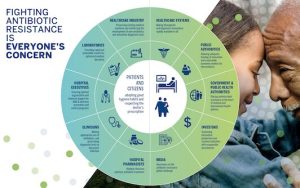Snapping defeat from the jaws of victory
What is it about opthalmologists and cataract surgery? If there were ever a success story in the world of medicine it is this: Better and more consistent quality than years ago delivered at a remarkably lower cost. But it seems like the profession insists on ways to make it more expensive.I have discussed one such “innovation,” the femtosecond laser, and the thousands of dollars in direct consumer cost that it entails and that has been authorized by CMS, the Medicare agency.Now Michelle Andrews at Kaiser Health News summarizes a recent NEJM article. Excerpts:Requiring patients to get blood work and other tests before undergoing cataract surgery hasn’t been recommended for more than a dozen years. There’s good reason for that: The eye surgery generally
I have discussed one such “innovation,” the femtosecond laser, and the thousands of dollars in direct consumer cost that it entails and that has been authorized by CMS, the Medicare agency.
Now Michelle Andrews at Kaiser Health News summarizes a recent NEJM article. Excerpts:
Requiring patients to get blood work and other tests before undergoing cataract surgery hasn’t been recommended for more than a dozen years. There’s good reason for that: The eye surgery generally takes less time than watching a rerun of “Marcus Welby, MD” — just 18 minutes, on average. It’s also incredibly safe, with a less than 1 percent risk of major cardiac problems or death.
Yet more than half of Medicare patients received at least one pre-operative test in the month before undergoing surgery to remove cataracts in 2011, a recent study found.
“Their patients [tested] were no sicker or older,” says Catherine Chen, an anesthesiologist at the University of California, San Francisco, and the lead author of the study. “It suggests that it’s habit or practice patterns.”
Cataract surgery used to take a few hours and require general anesthesia. In those days, preoperative testing made more sense, says Chen. Now people often receive only a topical anesthetic eye drop to numb the eye or sometimes a local anesthetic that may include a sedative for relaxation.
But research shows that today, pre-operative testing for cataract surgery doesn’t result in fewer adverse events or better surgical outcomes, regardless of a patient’s health, says Chen.
Where is the American Academy of Opthalmology on such issues? Who stands for the patients? Where is CMS, and why do they allow this pattern of testing? Who stands for the costs incurred by the American public?
SOURCE: Not Running a Hospital – Read entire story here.








